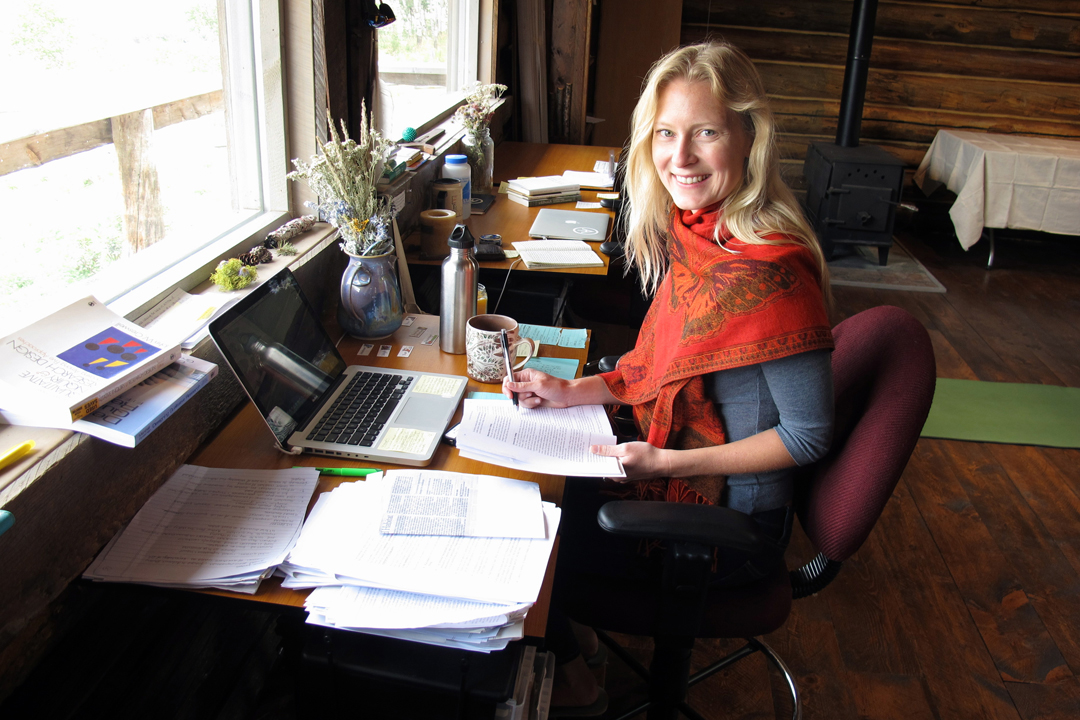Louisa Carter
 During her residence at the Taft-Nicolson Center, Louisa researched and shared information
from her studies in Ecopsychology, mindfulness practice, and social justice advocacy
with the community. She was able to invite new life into her research by spending
time in nature and time in the community. She was able to infuse her research with
her own creative energy and understanding in greater depth, whether it was through
organic discussions that arose from interacting with community members, or walking
the Centennial Valley landscape in solitude.
During her residence at the Taft-Nicolson Center, Louisa researched and shared information
from her studies in Ecopsychology, mindfulness practice, and social justice advocacy
with the community. She was able to invite new life into her research by spending
time in nature and time in the community. She was able to infuse her research with
her own creative energy and understanding in greater depth, whether it was through
organic discussions that arose from interacting with community members, or walking
the Centennial Valley landscape in solitude.
As a doctoral candidate in counseling psychology at the University of Utah, Louisa has a strong interest in understanding human behavior. Specifically, understanding what conditions can empower people to reach their full potential to live happy, healthy and meaningful lives. For the previous three years, she had focused her work from a feminist-multicultural perspective, understanding how personal suffering and mental illness is related to unchanging or non-dynamic cultural and societal structures such as how we think of money and business to how we think of ourselves as humans, men, women, parents. She began to expand this focus to understand how our interactions with the natural world and its wild and dynamic systems impact our human wellbeing. Louisa explored how we can think of ourselves as dynamic, wild and natural beings that have an impulse to evolve and grow.
As an Artist-in-Residence, Louisa created a presentation for community members called
Ecopsychology: Becoming Human, which introduced the idea of Ecopsychology and started
a dialogue to think about changing and evolving roles as humans dependent on a dynamic,
systemic and finite earth. An important aspect of this presentation was showing how
mindfulness deepens our understanding of ourselves and of our surrounding environments.
I worked on my dissertation exploring how acknowledging and shifting rigid societal
structures can empower people to have a sense of agency or confidence to overcome
and change their complex personal problems. She also worked on putting together a
workshop for the Greater Salt Lake Community called Inspirit: Reviving our Spaces, Communities, Ourselves. Slug magazine reviewed the workshop here.
We are all looking for help in a time of extreme crisis; a new vision of a just and sustainable world is so desperately needed; a version of leadership is required that is based in service and non-judgment; and organizations must learn to collaborate across difference. And, we all know that this work demands of us something radical and deep which is to completely change the paradigm of our believing, thinking, and acting…to change lifetimes of conditioning.
-Mirabai Bush (as cited in Hughes, 2009, para. 2).
